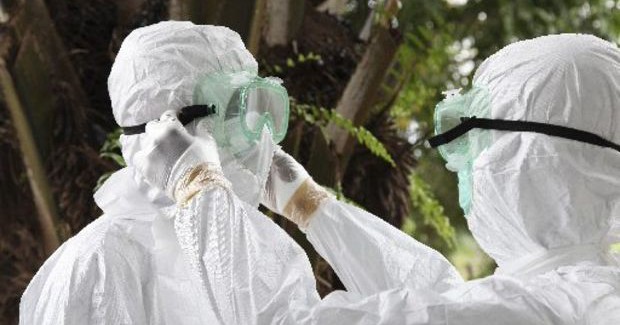
The destructive effects of climate change on the environment and human health are well documented. Now infectious diseases can be added to the list of things that climate change will make worse if it continues unabated. Look no further than the spread of Ebola to West Africa and the emergence of West Nile virus, say zoologists Dr. Daniel Brooks and Dr. Eric Hoberg.
Based on their research in the tropics and the arctic, respectively, the two uncovered the surprising fact that parasites are quickly making the jump from one species to the next, something that was previously thought to be impossible. That and the physical movement of animals due to changing environments pose emerging health risks around the world. They say that climate change is the culprit.
“Over the last 30 years, the places we’ve been working have been heavily impacted by climate change,” Dr. Brooks said in a press release. “Even though I was in the tropics and he was in the Arctic, we could see something was happening.”
Their observations show that parasites are quickly making the jump from one host to another, a rapid adaptation that puts species that did not previously host the parasite at risk. In one case, Dr. Brooks observed that the parasites found in capuchin and spider monkeys located in Costa Rica jumped over to howler monkeys after the two were hunted out of existence. This puts all animals — and the humans who come in contact with them — at greater risk, and significantly increases the likelihood that we will see more cases like the Ebola outbreak in West Africa.
“It’s not that there’s going to be one Andromeda Strain that will wipe everybody out on the planet,” Dr. Brooks said, in reference to the deadly pathogen in the 1971 science-fiction film. “There are going to be a lot of localized outbreaks putting pressure on medical and veterinary health systems. It will be the death of a thousand cuts.”
Their findings upend the idea that infections may die off with their hosts due to their inability to adapt. In fact, the exact opposite appears to be happening, which is why the authors are so concerned about this development.
The article, “Evolution in action: climate change, biodiversity dynamics and emerging infectious disease,” was published in the Philosophical Transactions of the Royal Society. It further confirms warnings that tropical diseases could spread to places where they no longer exist or did not exist prior. The emergence of cases of chikungunya, a mosquito-borne virus, in Latin America and parts of the United States starting in 2013 is one example of how infections can move to new places.
They recommend doing more to monitor the spread of diseases and where they are most prevalent. Knowing such information provides the ability to respond to current problems and know when changes take place. Dr. Brooks also called on more collaboration between the people who study diseases and animals in order to understand what might make certain species susceptible to new infections and parasites.
“We have to admit we’re not winning the war against emerging diseases,” Dr. Brooks said. “We’re not anticipating them. We’re not paying attention to their basic biology, where they might come from and the potential for new pathogens to be introduced.”
If the potential for rising seas, increasing natural disasters, heightened conflict risk, and food shortages are not worrying enough for some people, we can now add the spread of disease to the growing list of climate change fallout.
